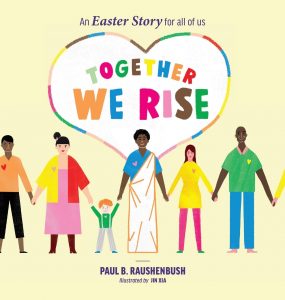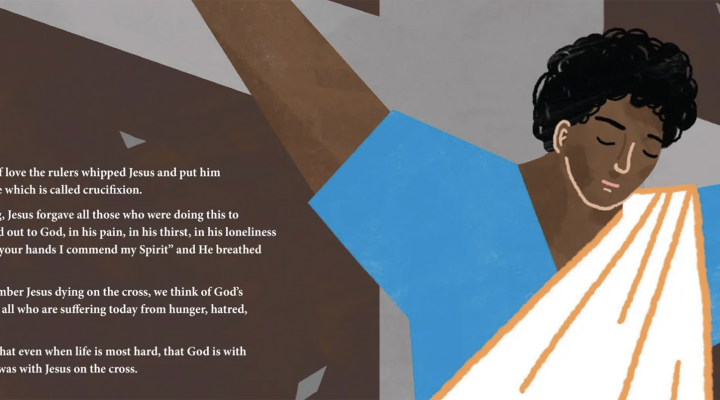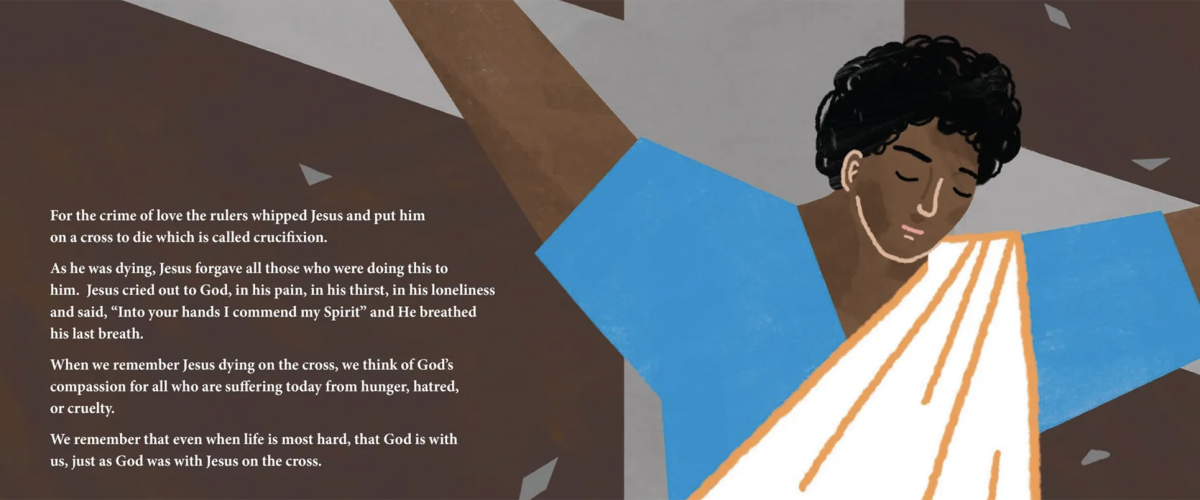Paul Raushenbush’s new children’s book, Together We Rise, was written to share the meaning of Holy Week and the joy of a loving God with his own kids.
“It was a story I intended for my two sons. My oldest was 5 or 6 at the time. It was borne out of my experience of becoming a father, and I tried to write with language I thought would resonate with them,” said Raushenbush, president of Interfaith Alliance. “With my kids as my audience, I wanted to introduce them to a great and beautiful story, and in some ways a scary story.”
But the book has taken on some additional objectives with its December publication, including pushing back against the theology that reduces the death and resurrection of Jesus to little more than an act to satiate an angry God.

Paul Raushenbush
“My own theology is not rooted in atonement theology, and most of the children’s books are all about Jesus dying for our sins,” he said. “One of my hopes for this book is that it will inoculate children against the allure of a militarist or triumphalist Jesus and instead foster an understanding of a Jesus who is about love, which is a different kind of power.”
The theology expressed in the book is not only his own but also that of his grandfather, Walter Rauschenbusch, a leader of the 20th-century Social Gospel movement that sought to institute Christ’s teachings by advocating for society’s cast-offs.
Such a perspective remains relevant in an era of rising Christian nationalism and racial injustice, which the book counters with its portrayal of a Black Jesus, he said. “In a time when Christianity is being contested and weaponized, we need to do things that lay claim on our faith by showing that Jesus had something to say about hate.”
In that sense, Together We Rise can function as a tool for discipling children and youth about Jesus and his emphasis on serving others, Raushenbush said.
“That is my hope for it. My deepest desire is that this book would be in every youth group that adheres to that kind of tradition, that Jesus stood for love and opposed hate. It offers an opportunity for churches to explain early on to young people that Jesus served and was surrounded by misfits. They can see that vividly in this story.”
 A broader aim for the book is to encourage parents to create or expand family holiday traditions. Since before it was published, Raushenbush said the reading the story together became a way for him and his boys to bond over the events of Holy Week.
A broader aim for the book is to encourage parents to create or expand family holiday traditions. Since before it was published, Raushenbush said the reading the story together became a way for him and his boys to bond over the events of Holy Week.
In his introduction to the book, Raushenbush relays how the story compelled his oldest son, Walter, to express his understanding of Jesus and Easter.
“Walter spoke about Jesus and I was amazed. He started by saying: ‘It wasn’t about power, but it was about love.’ And he recited Jesus’ words about not judging and the Golden Rule. Most importantly, we talked about God and Jesus in a way that felt meaningful for all of our lives.”
Raushenbush recalled having similar experiences as a child. “When I grew up, we did special things in our family every Christmas and Easter. Some of it was at church, some at home. It’s just what we did. But when we have our own kids, we have to discover those practices for our families. Part of this project is about creating those rituals.”
The book is effective, in part, because it wasn’t written with other goals in mind, Raushenbush said. “I wrote it for my kids. It doesn’t ring pedantic because I wrote it for them. It’s a children’s book that happens to come from the center of my faith.”
Readers, therefore, will not encounter any mentions of the Christian right or racism or atonement theology. “I write a lot about those things in my work with the Interfaith Alliance. If I were to write about those issues as a foremost concern in the book, it would sound very different. It would sound pedantic. But I wrote the story three or four years ago as Holy Week was approaching and I wanted an opportunity to talk to my sons about it.”
It wasn’t easy distilling 2,000 years of theology and 30 years of social justice ministry into a children’s story that conveys the love Christ showed humanity through his ministry, crucifixion and resurrection.
Or as the book explains: “Jesus rose from the dead to let us know that God’s Love in our souls does not die, even when our bodies do. Jesus rose to remind us that there is always hope, that God always is with us, and God’s love and justice is more powerful than fear and hate.”


